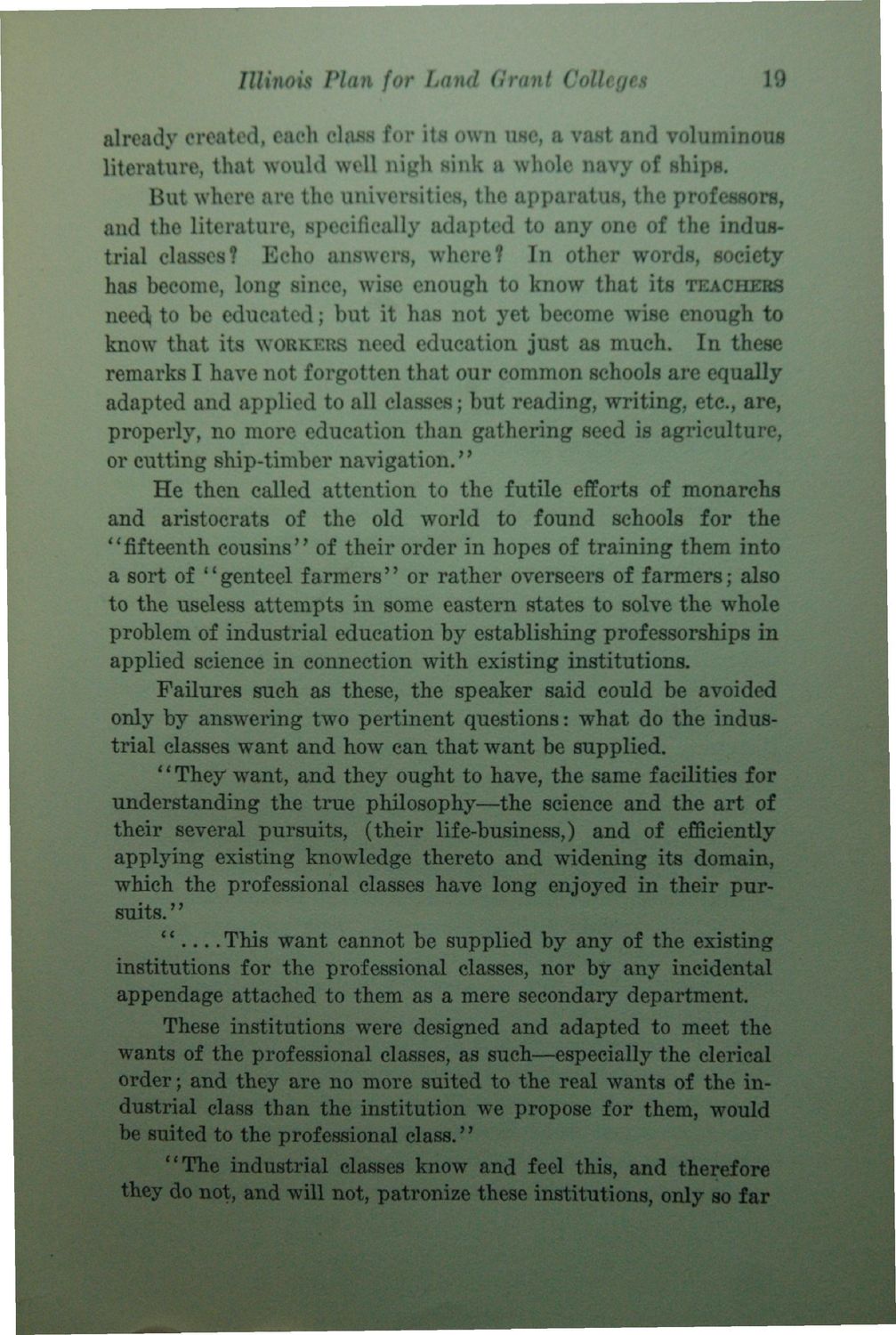| |
| |
Caption: Book - History of the University (Powell)
This is a reduced-resolution page image for fast online browsing.

EXTRACTED TEXT FROM PAGE:
IUinois Plan for Land Grant Colleges 19 already created, each class for its own use, a vast and voluminous literature, that would well nigh sink a whole navy of ships. But where are the universities, the apparatus, the professors, and the literature, specifically adapted to any one of the industrial classes? Echo answers, wheref In other words, society has become, long since, wise enough to know that its TEACHERS needj to be educated; but it has not yet become wise enough to know that its WORKERS need education just as much. In these remarks I have not forgotten that our common schools are equally adapted and applied to all classes; but reading, writing, etc., are, properly, no more education than gathering seed is agriculture, or cutting ship-timber navigation." He then called attention to the futile efforts of monarchs and aristocrats of the old world to found schools for the "fifteenth cousins" of their order in hopes of training them into a sort of "genteel farmers'' or rather overseers of farmers; also to the useless attempts in some eastern states to solve the whole problem of industrial education by establishing professorships in applied science in connection with existing institutions. Failures such as these, the speaker said could be avoided only by answering two pertinent questions: what do the industrial classes want and how can that want be supplied. "They want, and they ought to have, the same facilities for understanding the true philosophy—the science and the art of their several pursuits, (their life-business,) and of efficiently applying existing knowledge thereto and widening its domain, which the professional classes have long enjoyed in their pursuits." " This want cannot be supplied by any of the existing institutions for the professional classes, nor by any incidental appendage attached to them as a mere secondary department These institutions were designed and adapted to meet the wants of the professional classes, as such—especially the clerical order; and they are no more suited to the real wants of the industrial class than the institution we propose for them, would be suited to the professional class.!' "The industrial classes know and feel this, and therefore they do not, and will not, patronize these institutions, only so far
| |